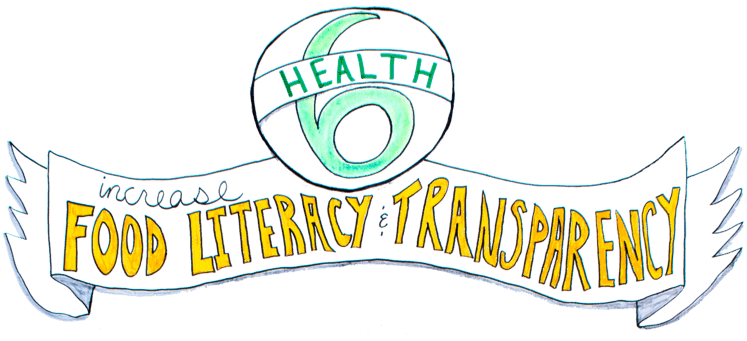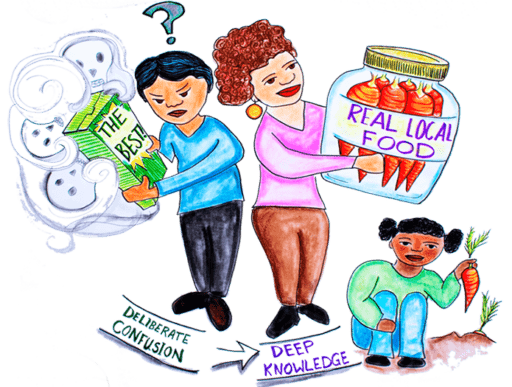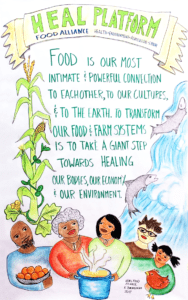A 2007 study by the W.K. Kellogg Foundation found it is almost impossible for the typical American to eat a meal without one hidden cost or another – whether those costs be to our health, to the environment, or to farmers, fishers, and workers. We are faced not just with an absence of information, but a blizzard of confusing and misleading information. Indeed, many food companies actually benefit from this confusion; they can market new products according to the latest health fad. For example, a recent Oceana report found that around 30% of all seafood in the US is being mislabeled.
We need a food system that replaces deliberate confusion with deep knowledge, and in which clear, accessible, and accurate information gives all people the power to make effective decisions about what we eat and how our food economy should be structured.
Nutrition and health care professionals play a key role in shaping the “food literacy” of our public, and schools play a special role in shaping the tastes and “food literacy” of the next generation. We envision gardens and good, healthy food in every single school building, but understand that there are other critical levers to pull as well. These range from a strong labeling system to knowing who gets how much profit in the industry to protecting the ability of people to investigate wrongdoing. We have a right to know what’s in our food! And we want more people of all ages to have direct experience with farming, fishing, ranching, and food production.
Nutrition and health care professionals play a key role in shaping the “food literacy” of our public, and schools play a special role in shaping the tastes and “food literacy” of the next generation. We envision gardens and good, healthy food in every single school building, but understand that there are other critical levers to pull as well. These range from a strong labeling system to knowing who gets how much profit in the industry to protecting the ability of people to investigate wrongdoing. We have a right to know what’s in our food! And we want more people of all ages to have direct experience with farming, fishing, ranching, and food production.


